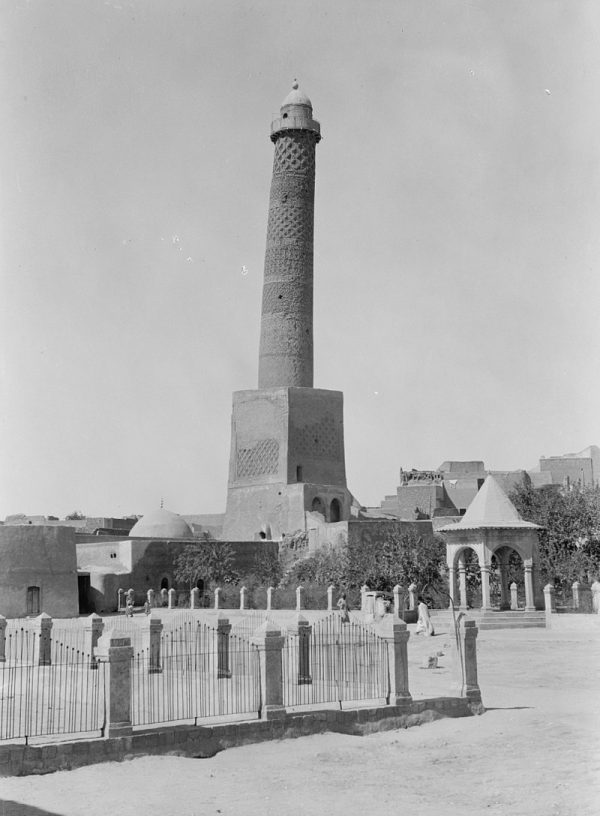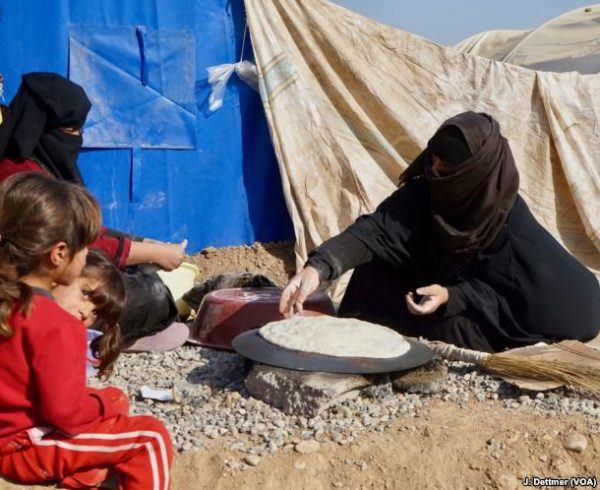Monday marked the 15th anniversary of George W. Bush announcing war against Iraq. Since then, Saddam Hussein has been removed, captured, and killed, the US faced a years-long insurgency, essentially won the war with the surge, and then abandoned the peace to give rise to ISIS. The continued efforts to rebuild Mosul, and the government’s seeming inability to win the peace, is a key microcosm of the 15-year effort. The city is a flashpoint for sectarian tension, and because ISIS exploits trauma, poverty, cultural malaise, and US failure to secure peace after battlefield victory, rebuilding the city is a vital front in the war on terror.
The city of Mosul fell to ISIS in 2014. At the time it was a vibrant, venerable, and diverse city of 1.4 million, with one of the most prestigious universities and historic sites in the region. The weak Iraqi government had to regroup its forces—by October 2016, Iraqi forces supplemented by American advisers and air strikes began the long battle to clear the city. By July, the city had been cleared.
The physical scars in the city are tremendous. The dense urban terrain and narrow alleys, particularly on the west side of the city, required extensive air strikes and became prime locations for ISIS improvised explosive devices. The rubble is described as apocalyptic—on the way out, ISIS torched and blew up many buildings, including Mosul University’s famed library with millions of manuscripts and a rare 10th Century Quran. Relief agencies report that it will take many years to remove all of the unexploded ordnances deliberately hidden or left behind in the city.
Suicide bombers targeted hospitals to prevent ISIS commanders being treated there from giving up vital intelligence. Junkyards of burned vehicles still line the highway for thousands of yards. ISIS bombed the famed al-Nuri mosque and the leaning al-Hadba minarets that were as iconic for the city as the Eiffel Tower is for Paris. Bridges were destroyed during the fighting, so the east and west sides of the city are still separated.

There are temporary bridges across the river, but it can take hours to cross from one side to the other. East Mosul, with its relatively easier fighting, is faring much better than the west side, where people lack clean water, electricity, and access to health care. Over the months, the thousands of wounded residents have shifted the healthcare burden from the need to handle traumatic injuries, to rehabilitation and longer-term care. Unfortunately, few hospitals and medical facilities have the resources to step in.
The population has numerous psychological scars as well. The displaced Mosul residents had their lives interrupted—they fled with little more than a bit of cash and a suitcase. Studies have reported and warned that the trauma, interrupted education, and disrupted social networks could result in a lost generation. One example is Zanab Ismail, who was a bright 17-year-old girl ready to take her final exams and attend medical school when ISIS invaded. Her family fled to an overcrowded refugee camp (without her school books, she tearfully recalled) where she faced the risk of sexual assault. Her family traveled to the unsanitary bathrooms in groups. When she returned home early last year, she finally finished her senior exams. She didn’t score high enough to qualify for medical school and her dreams were crushed. Assuming she scrapes together the money to retake the exam, the medical school and most of the buildings on the university campus have yet to be rebuilt. Orphaned children of Yazidi sex slaves or families killed in the fighting continue to roam the city looking for shelter.
On a larger level, the region faces significant regional and sectarian tension. Many Kurds don’t feel safe returning because the militia from their autonomous region recently had active firefights with Iraqi army units from the central government. Both Shia and Kurdish military forces initially collapsed in the face of the ISIS assault in 2014, so they fear retribution and reprisal from the majority Sunni community.

Catholic and Yazidi communities don’t feel safe returning after the systematic persecution from ISIS, often aided and abetted by sectarian neighbors. Sunnis are resentful that Americans and Europeans seem to care so much about the Christian minorities, but not their own suffering. The prime minister is trying to build upon the success of the elite (and diverse) counter-terrorism unit and heal sectarian divisions. But the people lack trust that the Shia-dominated central government will disburse the necessary funds without siphoning them towards their own cronies. The Iraqi government says the country will need over 100 billion dollars to rebuild the damage, but the money is slow in coming.
Analysts say it will take years to do immediate basics such as building a local, professional police force that will prevent sectarian conflict, rebuilding a fair and independent judiciary system, and rebuilding the Old City while maintaining its historic character. Even with the available money, there is chaos among government officials and NGOs. As American conservatives know, politicians often promise that big government will save the people, while red tape, political infighting, and incompetent or corrupt officials delay real progress.
The Iraqi government faces numerous hurdles to good governance. American forces found out during the occupation that good government services and civil servants are hard to find after years of mismanagement, sectarian conflict, and war. This all means that progress in rebuilding the city is incredibly slow, and the Iraqi government is in danger of losing the peace.
The city is free from the rule of violent and extreme terrorists, which is an important first step. But a great deal of work remains to be done. ISIS and other groups often gain recruits by offering people a glorious purpose and mission in what is otherwise an empty existence in spiritual and material poverty. There are few jobs, a broken justice system, dilapidated schools and hospitals, and little-coordinated traffic flow on the rubble-choked streets. Rebuilding Mosul is important for the safety and well-being of the residents that have suffered so much, but also because a strong and vibrant city, culture, and (non-radical) spiritual life drains the appeal of ISIS recruiting.
In that sense, the city is a very important example of the overall trend in Iraq. The United States excelled when it had a good strategy implemented by skilled soldiers. The air and ground campaign quickly deposed Saddam Hussein. But the provisional authority made key mistakes, such as disbanding the army that fueled the insurgency. They also failed to plan a post-war structure. Key leaders, like General David Petraeus, implemented successful counterinsurgency practices that finally won the war in 2009. The surge was so successful that Vice President Joe Biden called Iraq one of the Obama administration’s “great achievements.”
I admire the magic act that they have done. The Obama administration inherited a success, pulled the troops out against the advice of generals for a specious reason, things went to hell a short time later, and the entire mess is still blamed on a decision by Bush from 15 years ago! Even though Iraq was peaceful at the time of the American troop withdraw, it was fragile. The Iraqi Prime Minister at the time had alienated key Sunni allies, politicized the army’s leadership, and Iraq still needed significant American logistical support and training.
The Obama administration offered so few troops in a long-term deal, that it wasn’t worth Iraqi leaders taking the political hit as “American puppets” to agree. Much like the current danger in Mosul, the Iraqi government did not seem to meet the needs of its people for safety, security, housing, and education, and ISIS took advantage of a fragile Iraqi army to invade and conquer large portions of the country.
To avoid the pattern of the United States winning battles but then losing the peace, policymakers and the public should be very concerned about the rebuilding of Mosul. Just because the battle was won, the US can’t forget about the people in the city. A failure in the long-term commitment to winning the peace has caused numerous setbacks that undo the great work of the US military. The city of Mosul remains a vital front in the War on Terror—the war started 15 years ago this week.
















